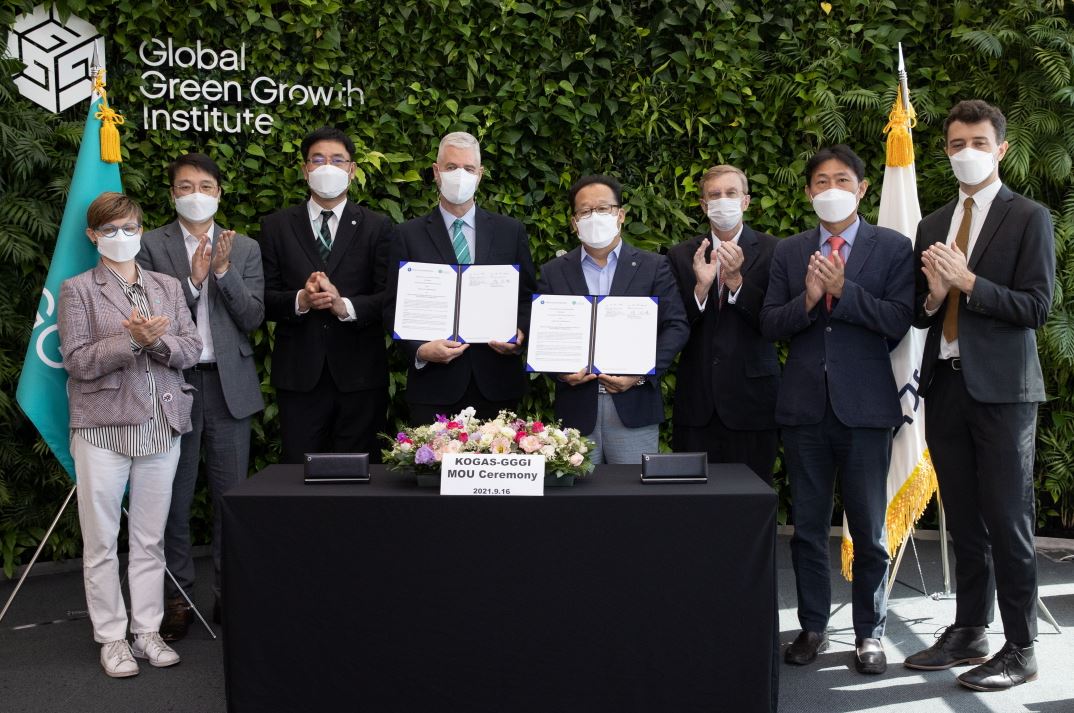South Korean LNG importing giant Kogas has signed a memorandum of understanding with the Global Green Growth Institute (GGGI) to promote green hydrogen in developing and emerging countries, including Indonesia.
Under the deal signed at the GGGI Seoul headquarters, the partners have agreed to share knowledge and cooperate to develop joint projects through the provision of technical assistance, according to a GGGI statement.
The duo would work together to share best practices to advance the production and use of green hydrogen in GGGI’s member countries and explore the possibility of exporting green hydrogen to countries looking to decarbonize their economies, the statement said.
“We believe that green hydrogen will be critically important for the transition towards net zero… this will be an important project between member countries of GGGI member countries, such as Indonesia, Morocco, India and Korea,” Frank Rijsberman, Director of GGGI, said.
Green hydrogen production is typically undertaken by using renewable energy to create hydrogen from water.
Also, this process would become “more economically viable in the near future, largely thanks to improvements in technology and to drastic reductions in the cost of renewable energy production,” the statement said.
Through this memorandum, the partners are hoping to “support emerging economies to leverage the wealth of renewable energy available in the country, promoting its use in local heavy industry and potentially for export to other countries.”
Another hydrogen move by Kogas
Kogas has recently joined forces with a unit of German engineering giant Siemens to work on green hydrogen production and hydrogen turbine power generation.
Furthermore, Kogas has this year revealed several hydrogen developments, including signing a deal with compatriot refiner GS Caltex to produce and supply liquid hydrogen in the country.
Under this memorandum, the two firms aim to build a liquid hydrogen production facility at a Kogas LNG import terminal.
In addition, Kogas is also part of the HyStation company, which aims to construct and operate hydrogen refueling stations to service public transport bus fleets in South Korea.
Australian LNG player Woodside recently said it had joined Kogas and other partners in the company as well.

